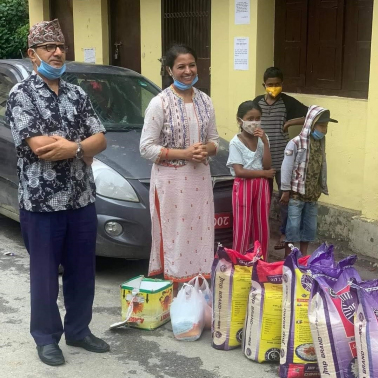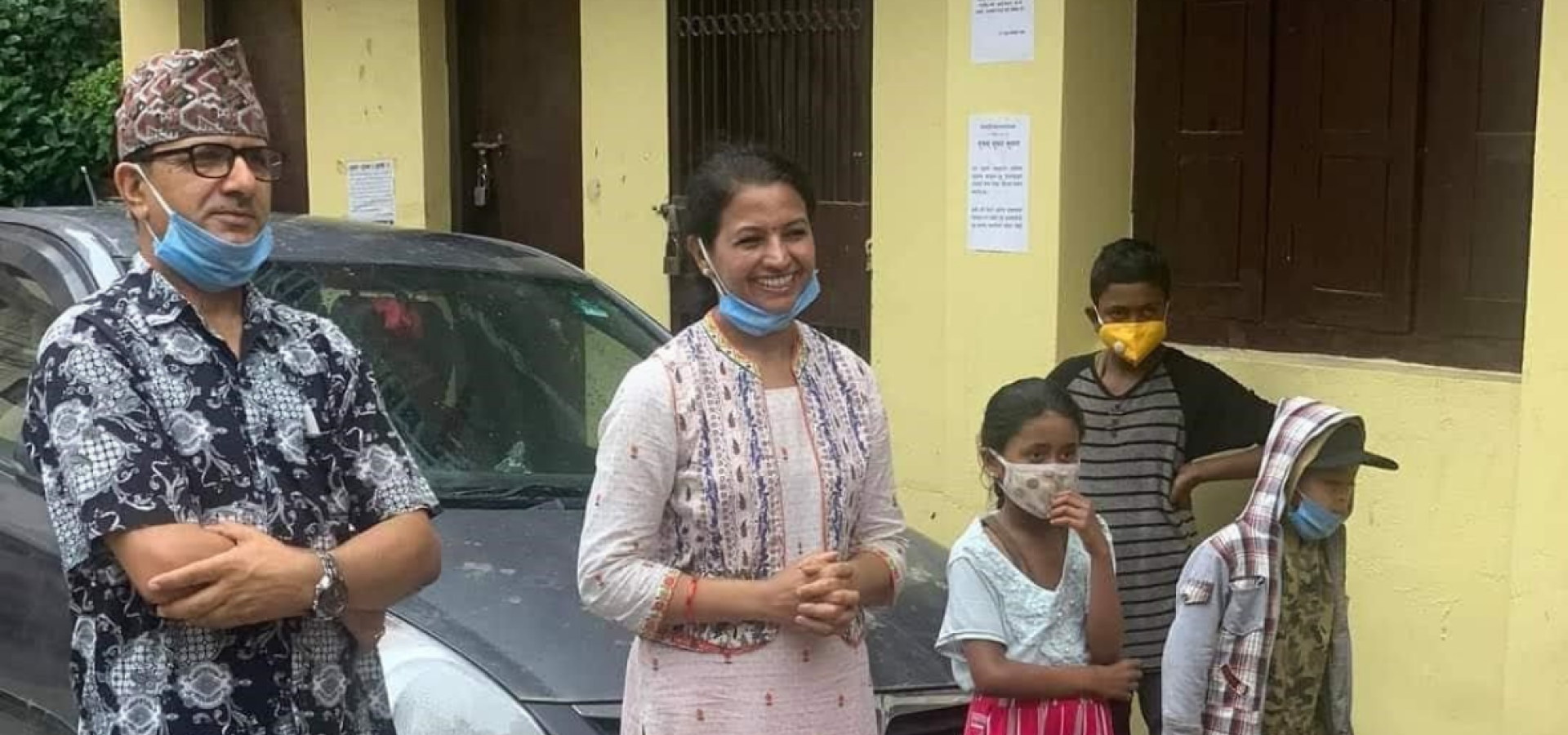A month passed quickly and in July we found ourselves supporting mothers and their newborn babies in hospital. Due to lock down their families were not able to help them and some had no means of financial support. We decided to organise milk, warm clothes for the newborns and were able to cover a month's rationing of food that included rice, lentils, salt and cooking oil. We discovered that some of the single mothers were not able to cover their rent, so with this concern in our hearts we managed to cover the rent for six single mothers.
There was some relief distributed by agencies which included the slums areas. Most young adults and parents in the slums work as taxi drivers and porters and all were out of work since the lock down, so resources and money were and are still scarce for families and individuals. The relief efforts included food parcels of rice, sugar, lentils, salt and cooking oil, but we discovered that sanitary napkins had not been included. Sanitary napkins were not seen as an essential item, so we arranged to pool our resources and distribute 240 packets of sanitary napkins to the girls in the slum areas alongside bottles of sanitizers, soap and masks. The good news is that the relief agencies swiftly adapted their essential relief package to include sanitary napkins. Our team also managed to help the elderly in province 2, 4 and 5 in Nepal. During the restrictions I was able to travel to province 5 to meet with some of them. The team I work with went to the other two provinces.
There have been many impacts due to the lockdown. Young people were not able to earn money and found themselves in a gap where they could not go and ask for help from any government authorities. We decided to help. Keeping their names anonymous we organised small monetary grants of 5000, 7000 or 10000 rupees to help them pay their rent and essentials. That is around $50- $60 a month.
During these months of lockdown in Nepal, many people lost their jobs, their income, their privacy and many young girls were forced to stay with their abusers. An alarming 2,218 people committed suicide over 4 months, that is around 20 people a day. That’s not the way it should be. We know that we need to create safe spaces for young people to talk about difficult issues. We are currently trying to organise regular calls so they can share how they are feeling and what they want to do in a safe and caring space.
Another alarming fact is that a lot of women journalists were sacked from their media jobs. As women they are not able to commute to work because of the lockdown restrictions making it hard for them to collect news from the field. One national paper who employed 22 women journalists forced 8 women to stay at home. We have been trying to support these women journalists. Both men and women have been affected and we are hoping to support male journalists too.
These are just some small initiatives that we started here at home - we believe sharing is caring.
I thank my friends and family for supporting us from different corners of the world. They check in with me to ask how I am doing and it helps when someone sees the value of what we are doing here in Nepal.

